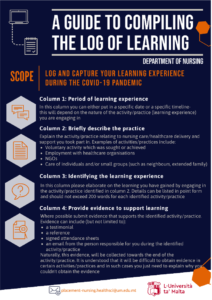Retaining nursing students during the COVID-19 pandemic, Malta
In early March 2020, all nursing students at the University of Malta had to leave care settings due to the erupting COVID-19 pandemic. The immediate priority of the nurse educators was to support their nursing students through this very uncertain period in their lives, particularly in their professional learning and development. Using digital technology, the educators pledged a commitment towards continuing their studies, maintaining students’ interest and engagement, as well as supporting morale and emotional wellbeing.
Furthermore, they set the standard to ensure that these cohorts of students would graduate with the same quality of teaching and learning as previous cohorts. The teachers were determined not to lose any precious nursing students. They were aware that this new and immediate challenge would take a toll on the educators, and support for each other was a priority as they shared their reflections and decision-making processes.
All members of staff shifted the delivery of theoretical learning and examinations to remote delivery during the lockdown period of the pandemic and introduced alternative ways of securing students’ learning pertaining to clinical learning.
Every week for six weeks, generic topics related to clinical learning, such as disability issues, professional resilience, working with emotions, environmental health, health promotion, wound care, moving and handling, and infection control were addressed through webinars, short interactive online courses and audiovisual simulation resources focusing on practice elements.
A Log of Learning (LOL) was developed and introduced. The LOL is a live document which essentially seeks to capture any nurse/ health related activity which students may voluntarily commit to as an extra-curricular commitment, in view of the COVID-19 pandemic. All activity needed to be supported by documented evidence and signed off by a health care professional. Students’ submissions were formally reviewed and documented by a committee of nurse educators and practitioners who were tasked to evaluate the relevance of a submission of a student to the respective programme of nurse education. The LOL provided the opportunity for students to record unexpected and unplanned out-of-curricular learning, which was taking place as a result of the pandemic, in a formal and structured manner.
As a result of the efforts of the faculty, all 154 students completed their programmes of studies with a delay of only a few weeks and are now fully qualified nurses. Attrition rates remained the same as in previous years and, during this delicate period, no students dropped out. Notwithstanding these positive initiatives as the COVID-19 pandemic evolves, the faculty envisage more stress, more uncertainty and more risk of student attrition however, they are determined to overcome this together.
Corinne Scicluna, a lecturer at the University of Malta said, “We feel that as educators, we are ‘holding the fort’ for colleagues and students, and perhaps once the pandemic is over, suppressed mental and emotional pandemic exhaustion will become more prevalent. So, as educators, our active engagement and support of students and colleagues will continue beyond the successful implementation of the national vaccination programme as we are expecting learning to be negatively impacted by COVID-19 repercussions.”
ICN would like to remind all nursing students they can register free-of-charge to the ICN Student Assembly to be held virtually on 23 October, at either 10:00 UTC+4: or 10:00 UTC-4. Student Assembly participants will receive the early bird student fee for the ICN Congress – a 20% discount off the Student Congress registration rate!


